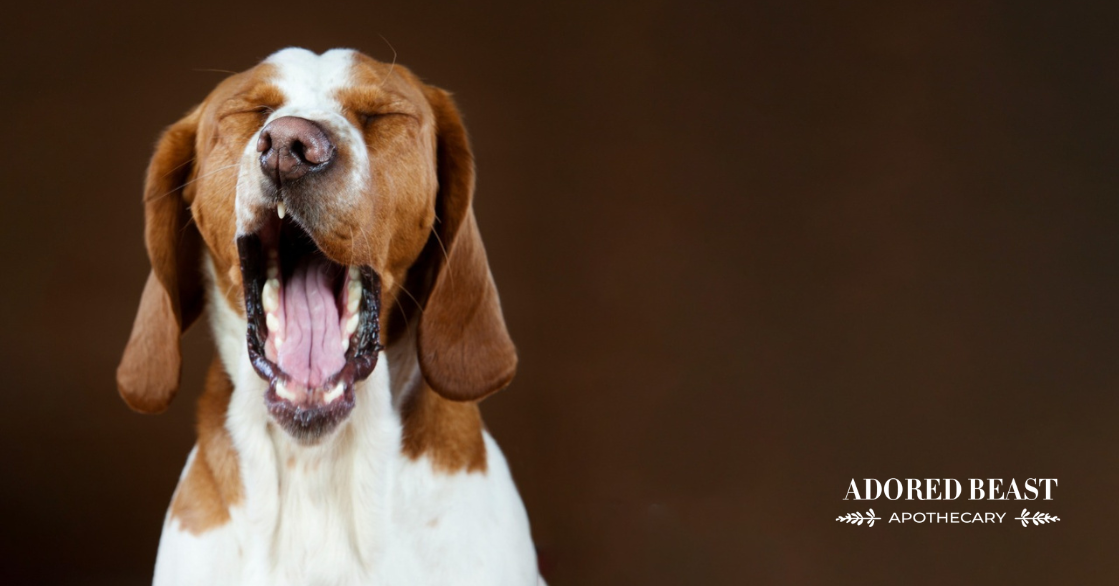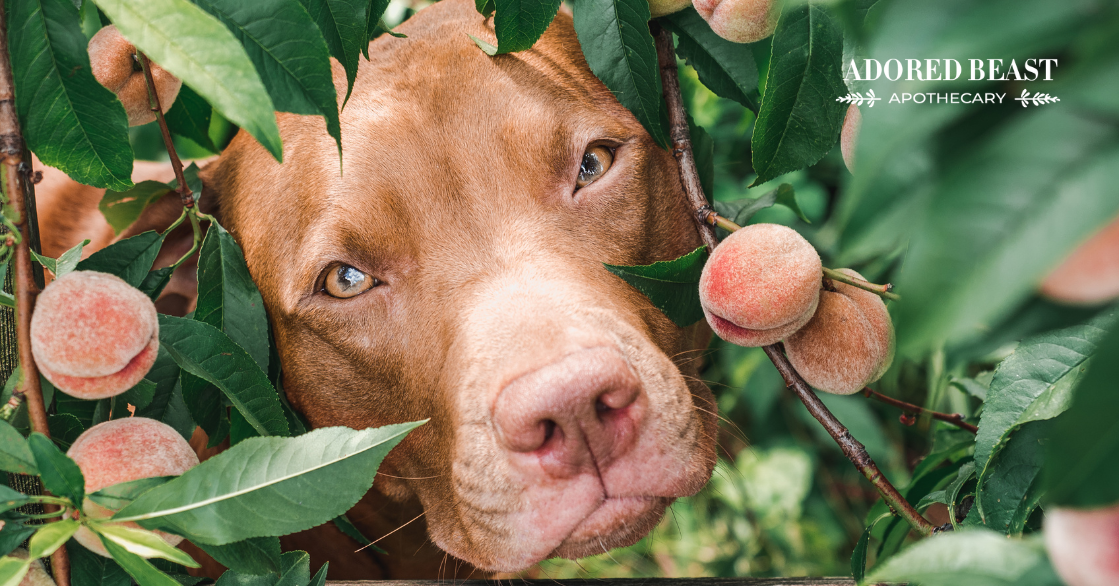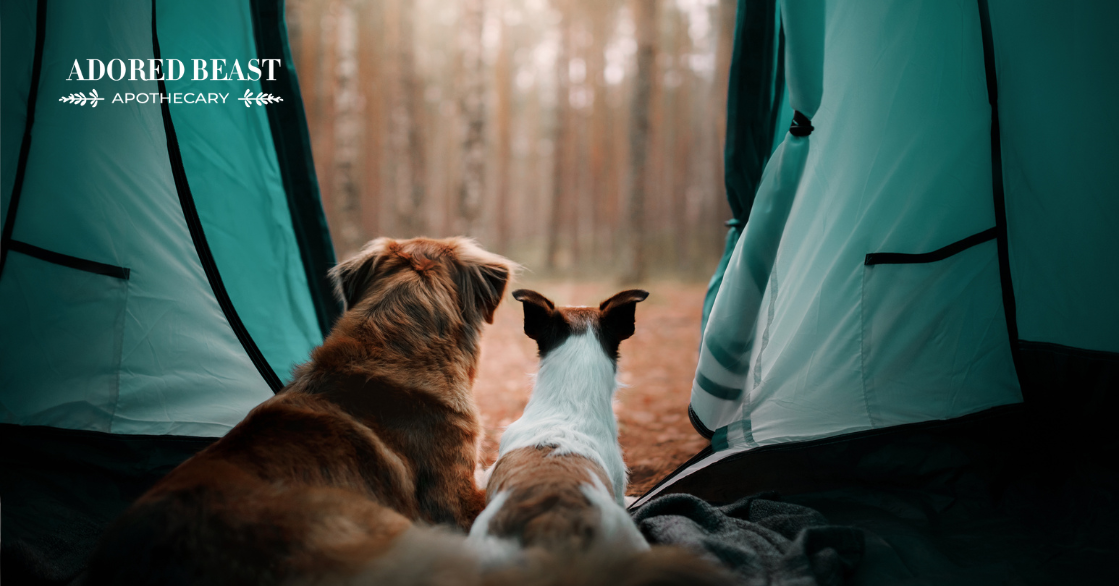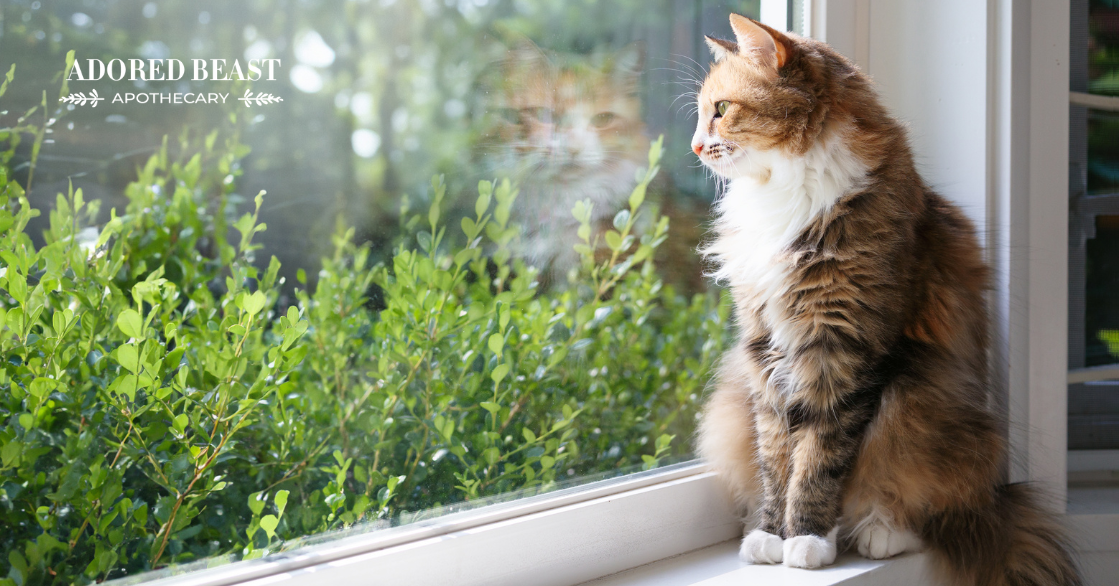If you’ve ever witnessed your furry friend making a strange, honking noise that sounds like they’re having trouble breathing, you might have caught a reverse sneeze in action.
Some dogs may only do it once or twice in their lifetime. Others will do it far more often. But whatever the case may be, it helps to know what it is – especially if it has just happened for the first time!
If you’ve heard the honk, and figured out what it is, we’re here to help you through it. Today, we’re talking about reverse sneezing in dogs – what causes it, and how you can help, both in the moment and in the future.
What is Reverse Sneezing in Dogs?
Reverse sneezing in dogs is the common name for paroxysmal respiration. It happens when dogs rapidly suck air in instead of blowing it out—making it effectively the opposite of a sneeze. During a reverse sneeze, a dog will make rapid and long inspirations, stand still, and stretch out their head and neck. This produces a loud snorting sound, which may sound like your dog has something caught in their nose or throat. A reverse sneezing episode can last for several seconds to a minute.
Reverse sneezing is not uncommon, and thankfully, while it may look and sound alarming, it is usually harmless and there are no ill effects. Dogs are completely normal before and after the episode.
So what causes it?
The exact cause of reverse sneezing in dogs is unknown, but there tend to be some common triggers:
- Irritants: Environmental factors like dust and pollen, chemicals, or even just strong odours can tickle your dog’s nasal passages, causing them to reverse sneeze. This includes perfumes, smelly lotions, even strong-smelling laundry soap.
- Excitement or Anxiety: Overexcitement, stress, or anxiety can induce reverse sneezing episodes. Dogs are sensitive creatures, and sometimes their emotions can get the best of them.
- Allergies: Just like humans, dogs can have allergies that lead to sneezing. Allergens like pollen, mold, or even certain foods might be the culprits.
- Physical Factors: Certain anatomical factors, such as elongated soft palates, can make some dogs more prone to reverse sneezing.
- Foreign Objects: In rare cases, a foreign object lodged in the nasal passages can trigger an episode.
- Pressure to Airways: A collar that’s too tight, or pressure around the neck, can also trigger reverse sneezing in dogs.
Handling Reverse Sneezing in the Moment
As mentioned, the sound of a reverse sneeze can be alarming. Even the stretching of the body can make it look like your dog is in distress. Remember, in most cases, a reverse sneeze is nothing to worry about, but your dog probably doesn’t like the feeling, so how can you help them in the moment?
If your dog starts to have a reverse sneezing episode, here’s what you can do:
- Stay Calm: Remember, reverse sneezing in dogs is usually harmless. The more relaxed you are, the less stress your dog will feel.
- Gently Massage: Lightly massage your dog’s throat to help soothe any irritation. But not with pressure – instead, gently run your finger up and down the front of throat area. This can help stop the episode more quickly.
- Block Irritants: If you suspect environmental factors are causing the reverse sneezing, consider eliminating those things from the air.
- Warm Compress: Applying a warm, damp cloth to your dog’s nose might help alleviate the irritation and stop the episode.
- Encourage Relaxation: Help your dog relax by speaking in a soothing tone, holding them gently, and offering treats or a toy to distract them.
Can You Prevent it in the Future?
Since we know some of the triggers, it can be helpful to take steps to reduce the occurrences (or eliminate them completely).
1. Clear the Air
Irritants in the air can be a major trigger, so clear it out! This could mean getting an air filter to filter dust and other irritating particles out of your home. And change those furnace air filters regularly.
Additionally, consider switching out any chemical cleaners to more natural options. You can also reduce or eliminate the use of chemical-based air fresheners, scented candles, or room/fabric deodorizers.
2. Address Allergies
If you know that your pet has allergies or sensitive to certain things, and these these often trigger a reverse sneezing episode, cut them out. Providing a balanced diet rich in whole foods can boost your dog’s immune system and potentially reduce allergy-related episodes.
Also, natural supplements, like probiotics or omega-3 fatty acids, can help boost your dog’s overall health and immune system. A strong immune system can help support the body, and while it can’t eliminate triggers, it can help to reduce allergen responses and build a strong body as a whole.
3. Reduce Stress
Stress can be a hindrance to our animals’ health in many ways, and it’s no different with reverse sneezing. If you notice that increased stress or anxiety tends to lead to an episode, work on reducing the stressors in your pet’s environment. A relaxed dog is less likely to experience reverse sneezing.
Implement calming techniques, such as massage or aromatherapy, to help reduce your dog’s stress and anxiety levels. Reduce your own stress as well – our dogs can feel when our levels are high. We have a lot of difference resources that you can check out at this post.
When to Seek Veterinary Help
As we mentioned, reverse sneezing in dogs is often benign and therefore nothing to get overly concerned about.
However, there are situations when it might be a good idea to speak with your trusted veterinarian:
- Frequent Episodes: If your dog is experiencing frequent and prolonged episodes of reverse sneezing, it does’t hurt to discuss this with your vet to ensure nothing else is going on, particularly in the respiratory system.
- Change in Symptoms: If the reverse sneezing changes, for instance, becoming more intense or accompanied by other symptoms like nasal discharge, coughing, or difficulty breathing, consult your vet.
- Lingering Concerns: If you’re ever in doubt or just want peace of mind, don’t hesitate to contact your veterinarian. Remember, you know your pet best!
Reverse sneezing in dogs, especially if it’s new to you and your beloved beast, may be alarming, but rest assured, in most cases, it’s nothing to lose sleep over. Keep your pup healthy and happy through a holistic approach to their diet, environment, and overall well-being. And when those quirky reverse sneezing moments occur, put a blanket of peace and calm over them with your loving touch and soothing words.












